My very first year teaching, I was put in charge of planning a field trip for students who had earned Honor Roll. I was told to do it as cheaply as possible. When I asked what my budget was, the response was $0. Ok… I’ll do my best. Hopefully, this won’t be your experience! Since then, I have planned or co-planned several field trips ranging from free trips to overnight, out-of-town trips. Here is what I have learned.
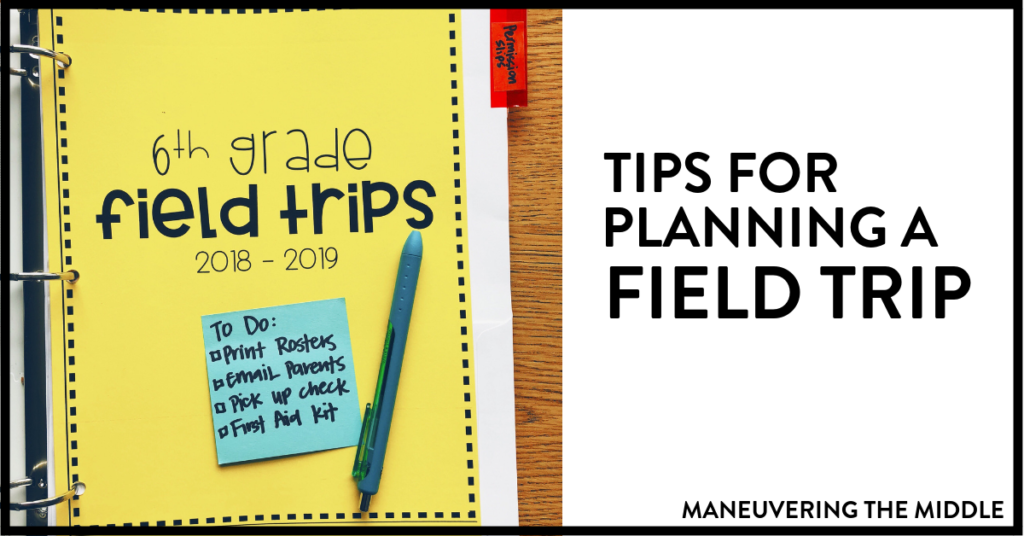
TIPS FOR PLANNING A FIELD TRIP
Finding a Destination
This is the trickiest task because it is so dependent on your budget and location, but here are a couple of tips. Ask students what they like to do around town or what field trips they have been on before and enjoyed. If it’s fun, students won’t mind going somewhere they have gone before. Also, Googling (your town’s name + field trip) will result in websites galore with lists of places to visit in your city. Lastly, visiting a local college or university is relatively free and will pump up students for attending college one day. (Also, those trampoline facilities are just about the best thing to take 100 students to. You can tie it to their learning about physics in science if you need an educational objective.)
Scheduling
If you are planning a field trip, there are so many people that need to know about it– parents, students, the front office, the administration, specials teachers, and all of your grade level teachers. Teachers need to plan their scope and sequences around it and make sure they don’t take that day off. Give everyone a minimum of a month heads up. The more time the better. Typically, I look at the school calendar, pick 2-3 dates (I prefer trips to be on Fridays), email my team to ask if any of those dates don’t work, and then schedule the trip with the facility we will be visiting. Once confirmed, I send out a calendar invite to basically the entire school’s staff.
Getting Everyone on the Same Page
Once the field trip has been scheduled, I like to meet with all of the teachers who will be attending. This is the time in which I delegate tasks and we run through the agenda for the day. This agenda will include everything from what teachers are on which bus with what students to when we will take restroom breaks. I create a three-column table with the headings of time, what students are doing, and what teachers are doing. The more questions that are answered on that document, the less figuring things out when you are on the field trip.
Another tip: If you use Google Sheets, not only is it editable and accessible to all as you brainstorm, but you can also have separate sheets devoted to the day’s agenda, attendance lists, bus assignments, important contact information, to-do lists, and delegated tasks that all lives in one workbook.
Delegate Tasks
If you are planning a field trip, then you should not be trying to do everything by yourself! Here are some tasks you can delegate: contacting and organizing parent volunteers; making, copying, and distributing permission slips; scheduling buses; or requesting and sending payment. If I am the point person, then I will handle many of these tasks (because sometimes it is just easier), but I try not to take on all of them.
Set Students Up for Success
My team and I like to announce when a field trip is coming up, but we give little to no details about where we are going. We share vague clues the weeks leading up it; this builds suspense and increases the joy. Once we need to send permission slips home, I show students a PowerPoint that announces where we are going and what we will be doing and that shows pictures and/or videos. A couple of days before the field trip, in advisory, I show an additional PowerPoint with ALL the information that they need: what the schedule for the day will be, if they can bring money and how much, what they should wear, how they should act, reminders about their behavior, and I answer no less than 100 questions. Teacher tip: I use the field trip as an incentive for good behavior in my classroom. Students work much harder when they know something fun is on the line.
Don’t Forget!
- Medicine/first aid kit
- Rosters for attendance (on a clipboard)
- Permission slips
- Find out how to schedule buses at your school
- Lunches
- Emergency procedures and any important phone numbers
If you are planning a field trip, then you are basically a teacher pro! Well done. It is a huge task to take students off campus for a fun learning experience. What tips would you add? And what trips have your students enjoyed?
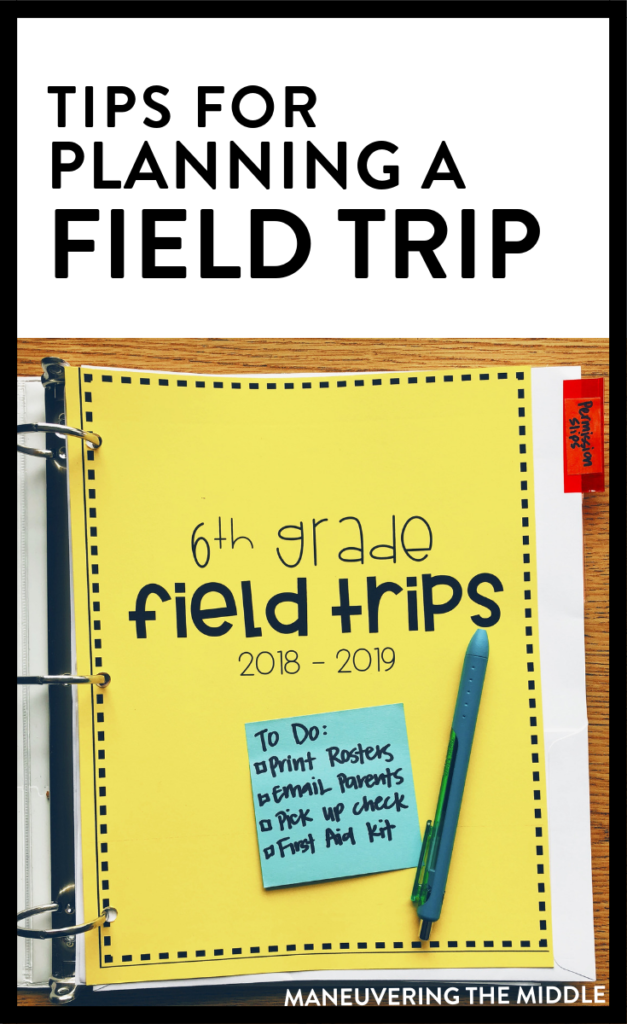
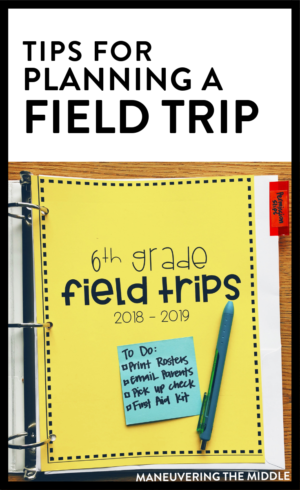
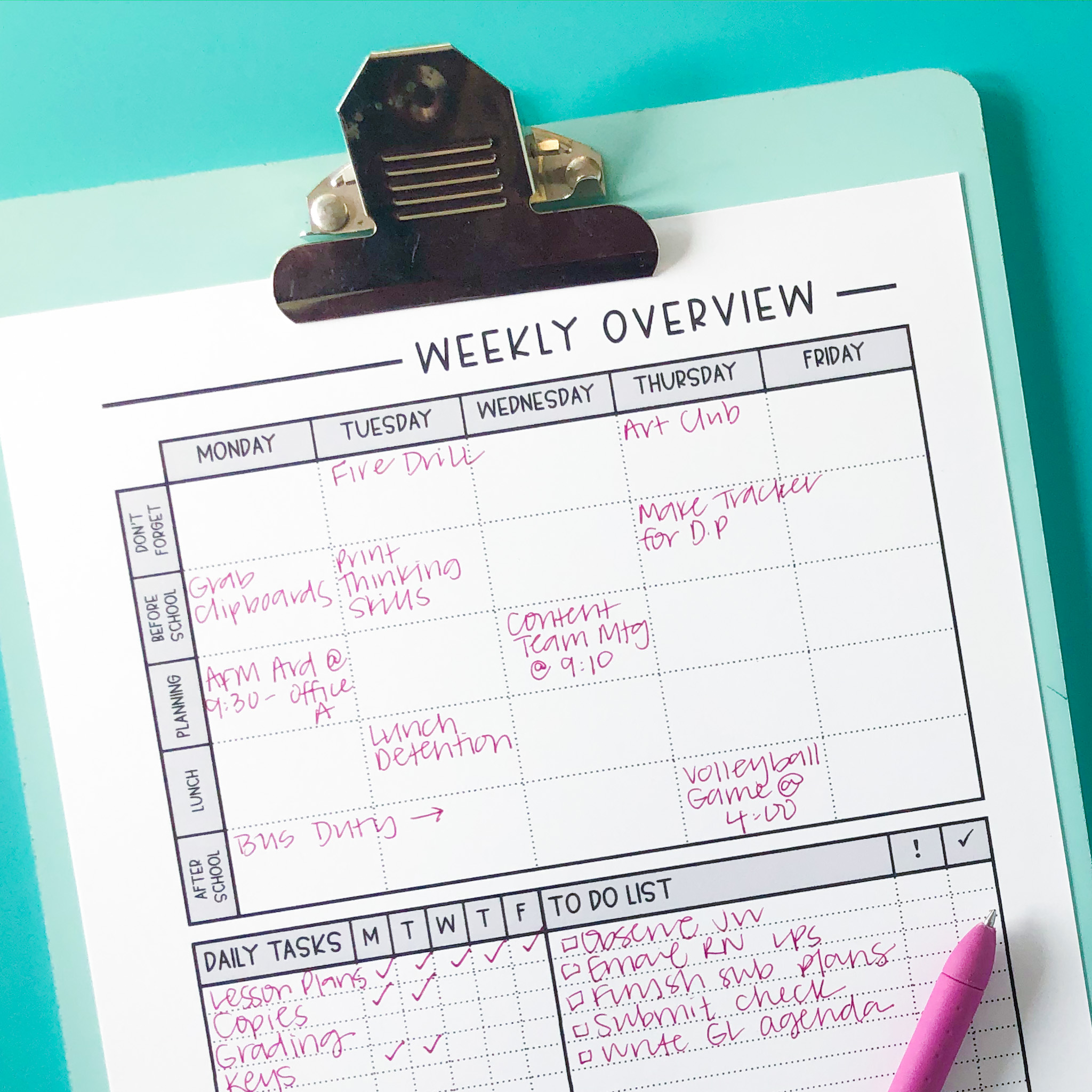
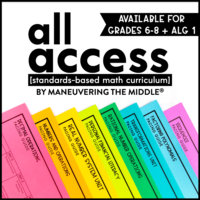


These are all great tips and I think that delegating the work may be the most important. Field trips require ample planning and effort, so if a teacher is planning everything alone, it may be in their best interest to bring in some assistance. Enlisting the services of a student’s parent, for example, will help to take some of the burden off.